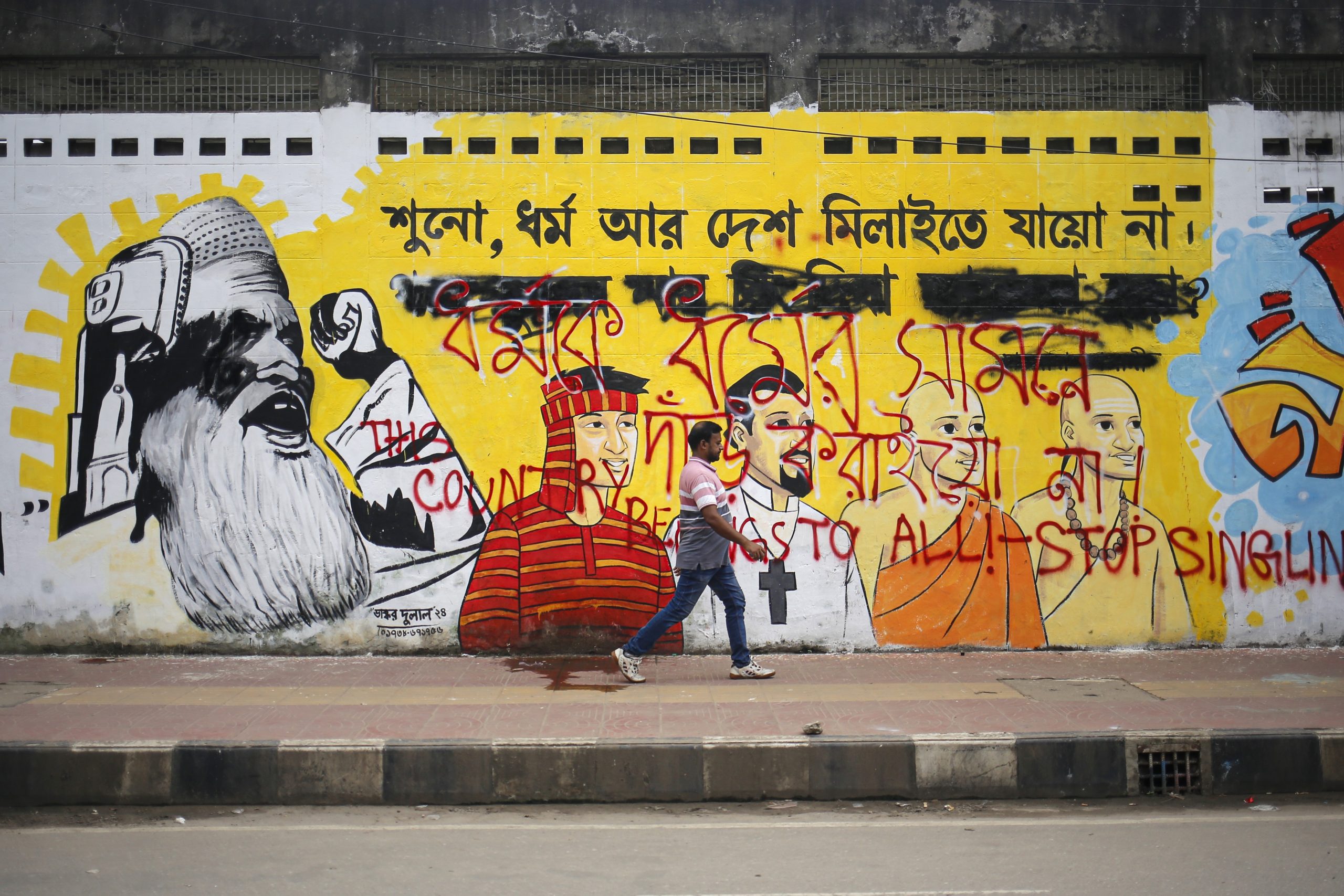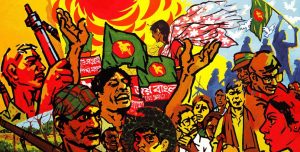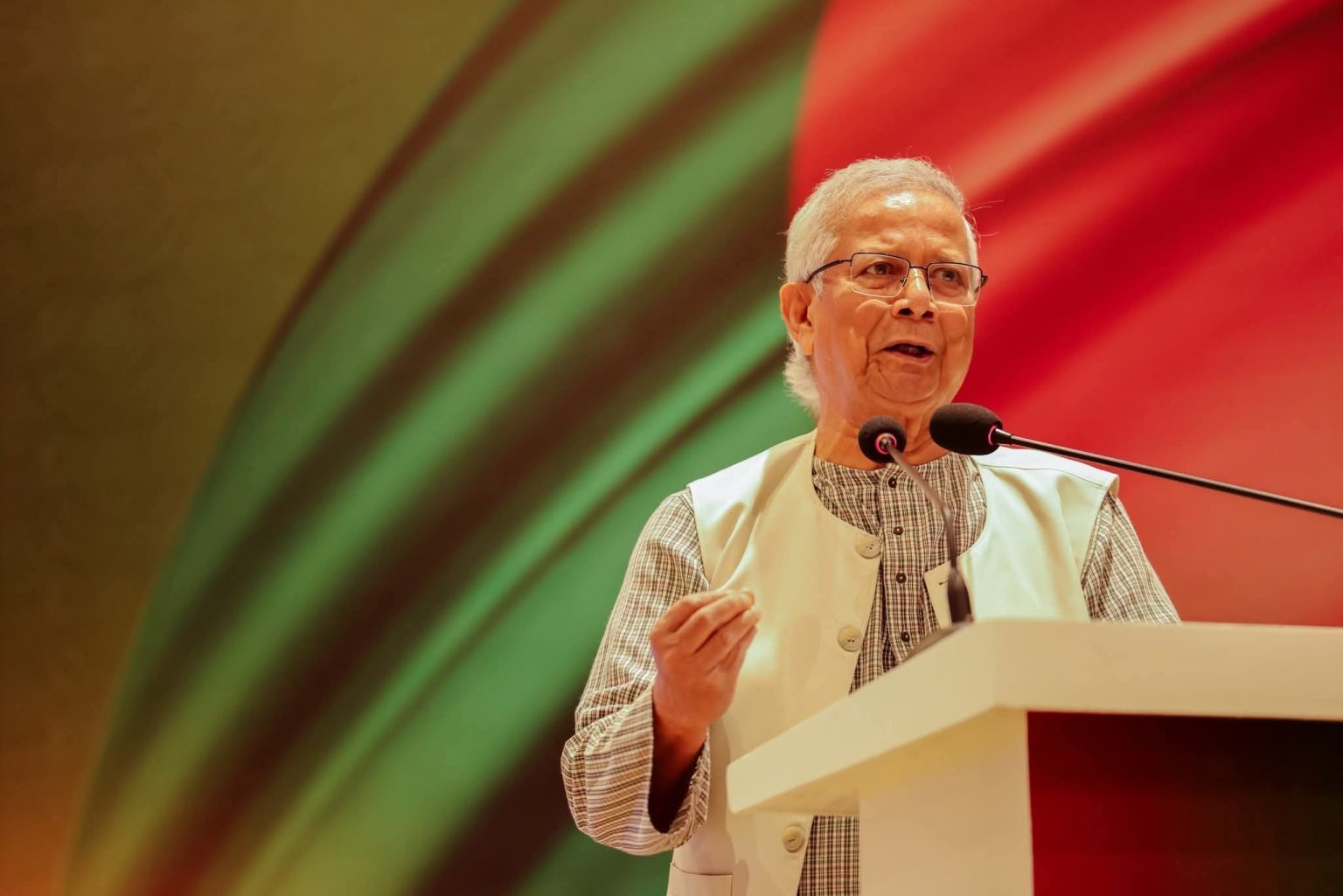“Man is as great as his dreams” — a famous quote by Professor Abdullah Abu Sayeed. But it is more than just an aphorism; it contains a deeper philosophical truth. When a nation dishonours its dreamers, it perhaps diminishes its own stature.
The escalating political and social controversy surrounding Dr Muhammad Yunus in Bangladesh is not merely about a man– it has become a vortex involving national conscience, dignity, and future aspirations.
At this juncture, will the fate of the nation be shaped solely by statistics and political strategies? Or by moral courage and self-respect? This is the critical question facing the state.
Internationally, Yunus is celebrated as a Nobel Peace Laureate, the pioneer of “social business,” and a messenger of alternative economic thought. Yet at home, he finds himself at the centre of accusations, cast as a polarising figure– not unlike the tragic king in Rabindranath Tagore’s Raktakarabi.
Having assumed power in the aftermath of a July uprising that dismantled a fascist order, Yunus now appears to be riding the proverbial tiger of power– a ride that could turn fatal should he try to dismount.
First, criticisms around the rise of the National Citizen Party (NCP)– dubbed the “King’s Party”– have led to allegations of political bias. While Yunus is not officially tied to NCP, it was NCP leader Nahid Islam who first hinted at the interim government’s resignation– information even the cabinet hadn’t confirmed. Islam’s BBC interview citing the Chief Adviser’s “lack of confidence” created a storm, prompting a flurry of political dialogues.

This has raised valid questions: Is Yunus truly neutral, or has he become a captive of a particular political circle?
As Rabindranath Tagore once said, “Only those with a sense of justice deserve honour.” If the Chief Adviser’s impartiality is under question, so too is the dignity of his office.
Second, Yunus’s government is seen as weak in its handling of the Rohingya crisis, particularly on the sensitive issue of the “Rakhine Corridor” involving China and India. His initial willingness followed by a sudden retreat has exposed a fragile leadership under both domestic and international pressure. As Syed Mujtaba Ali warned, “A nation without dignity earns its freedom only as a gift of charity.” In this light, the retreat appears inevitable, tied to sovereignty and national pride.
Third, the apparent loving relations between NCP and other interim advisers– and even signs of quiet approval from central authorities– further undermines the claimed neutrality of the Yunus administration.

On 2 June, BNP, Jamaat-e-Islami, and the newly formed NCP all sat across the table with Yunus for electoral dialogue. The NCP, born out of the July transition, is barely four months old– its maturity still untested. This equal footing raised eyebrows and laid bare the government’s ethical compass.
As BNP’s Salahuddin Ahmed rightly noted, “If Yunus fails, it can be judged politically. But to humiliate him is to humiliate the nation’s pride.”
Following the July upheaval, Yunus symbolised a new hope– a humane, forward-looking politics. To destroy that hope is to extinguish the last flicker of potential.

The dream of rebuilding a democratic society– for which thousands gave their lives– must not be so easily squandered.
The Yunus debate reminds us: safeguarding national pride is not the job of politicians alone– it is also the duty of civil society, the intelligentsia, and the media. The question is, are we fulfilling that duty?
And one day, history may ask: “Did you raise your voice then? Or did you silently agree?”
As poet Jibanananda Das once wrote, “We who dream, know that dreams never die– they only need time.” So, the journey must continue. For that, we must see in Muhammad Yunus not just a thinker, but a resolute bearer of responsibility.


